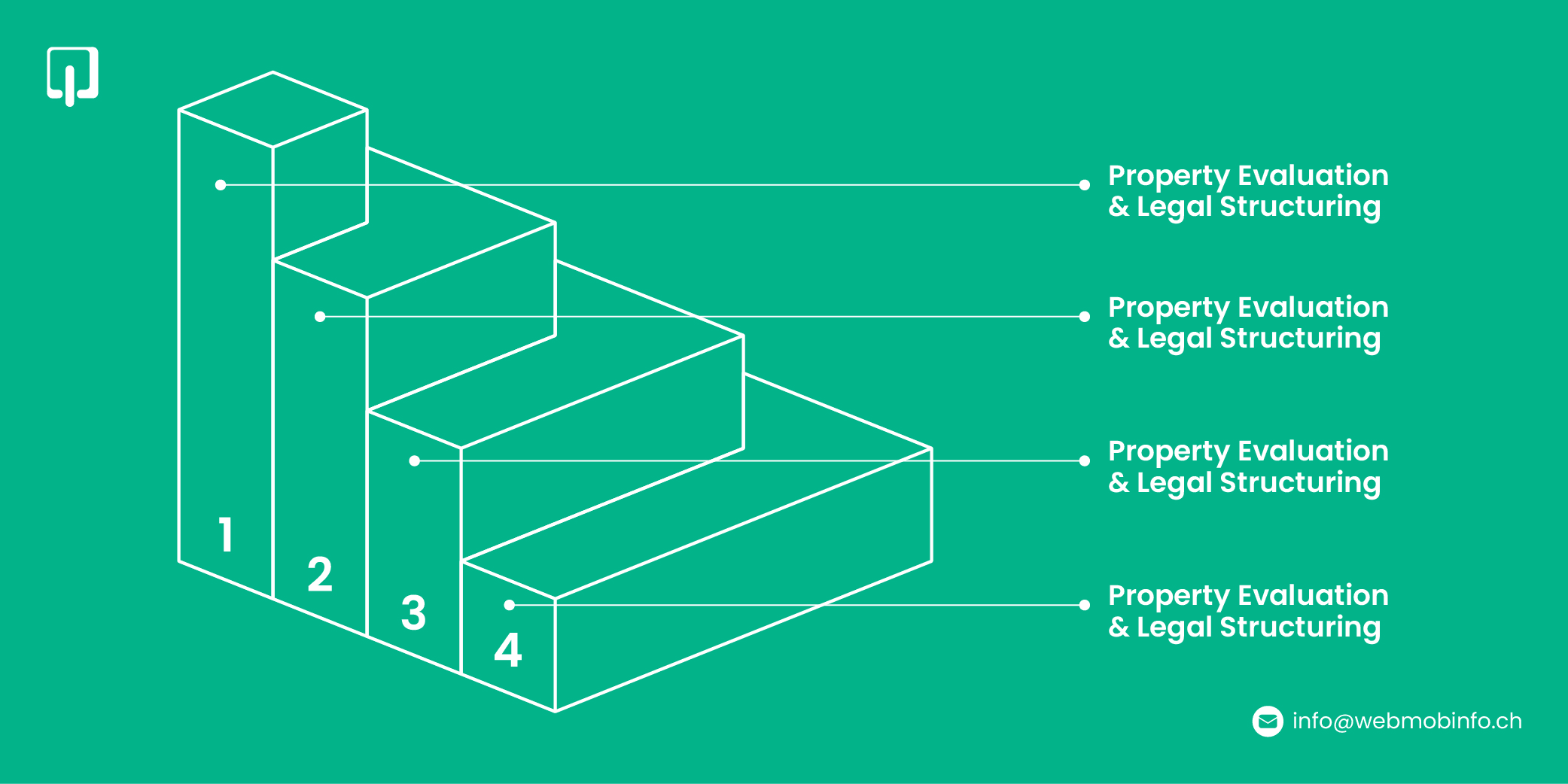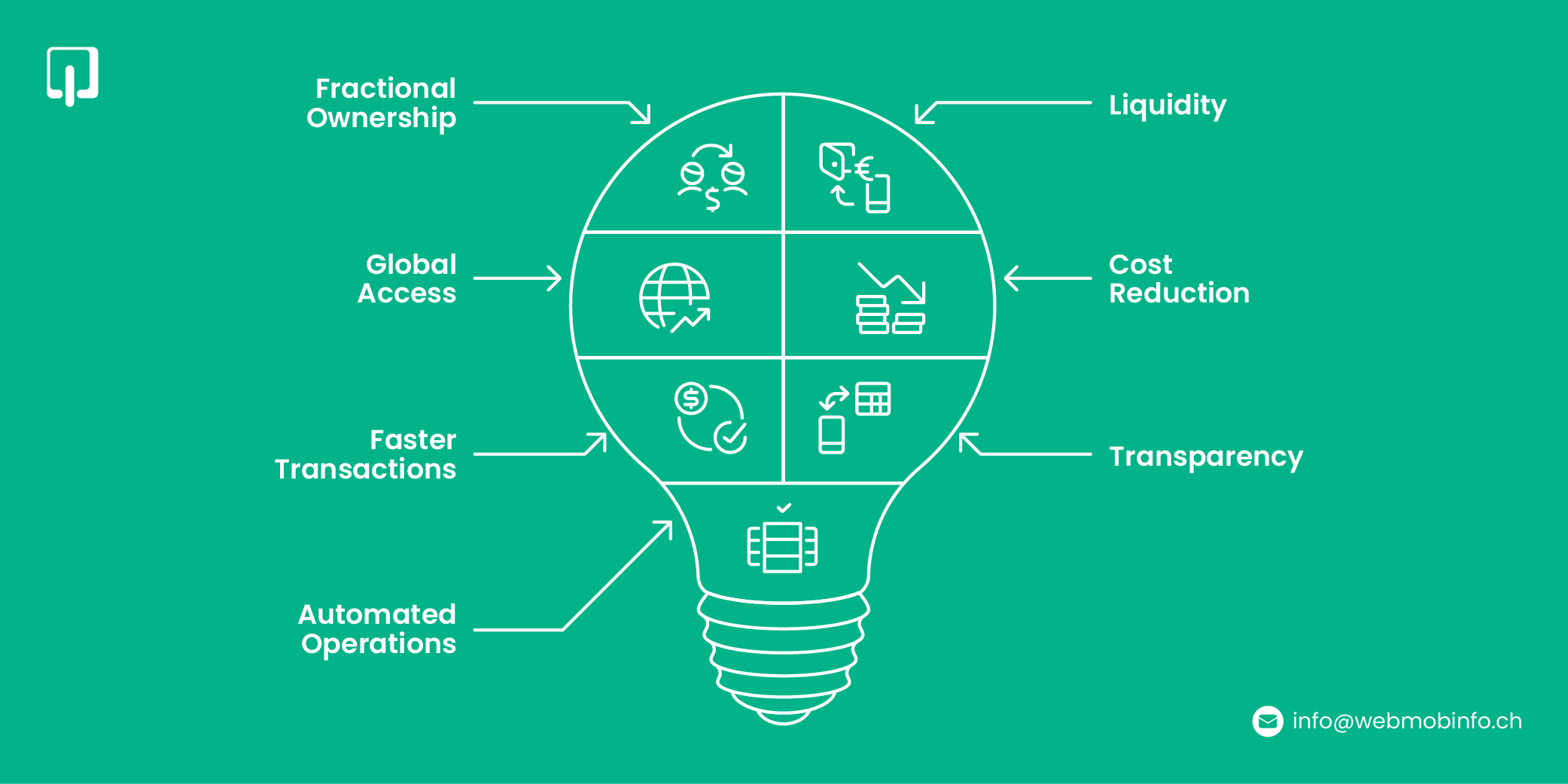July 31, 2025
Lorem ipsum dolor sit amet, consectetur adipiscing elit. Suspendisse varius enim in eros elementum tristique. Duis cursus, mi quis viverra ornare, eros dolor interdum nulla, ut commodo diam libero vitae erat. Aenean faucibus nibh et justo cursus id rutrum lorem imperdiet. Nunc ut sem vitae risus tristique posuere.
Traditional real estate investment is not known for its flexibility. Investors typically face high entry barriers, lengthy paperwork, geographical restrictions, and illiquidity. For decades, property ownership remained a game of capital-intensive acquisition and prolonged holding periods.
But digital innovation especially through blockchain solutions has brought a different structure into view. Real estate tokenization offers an alternative path that’s both accessible and efficient. It refers to converting physical real estate into digital tokens on a blockchain, enabling fractional ownership and direct market participation.
With a growing number of platforms supporting tokenized property trading, real estate tokenization platforms are transforming the way companies and individuals approach asset ownership. It’s no longer just about buying a building; it’s about owning a share, secured transparently, managed digitally, and traded efficiently.
Real estate tokenization is the process of digitally representing ownership rights in a property by issuing blockchain-based tokens that represent ownership. These tokens correspond to fractional shares of a real estate asset, which can be held, transferred, or traded.
The tokenization of real estate relies on blockchain infrastructure, which ensures the secure and immutable recording of transactions. By doing so, the system minimizes manual errors, reduces reliance on intermediaries, and adds transparency to the lifecycle of an asset.
Smart contracts facilitate automated management. Whether it’s distributing rental income, recording a trade, or executing shareholder rights, these contracts ensure rules are enforced without human bias.
In effect, real estate asset tokenization turns a complex asset class into a digitized, traceable, and accessible instrument.
Let’s break down the process of tokenizing a real estate asset:

The asset must undergo valuation, due diligence, and legal preparation. Ownership is typically held by an SPV (Special Purpose Vehicle), which is authorized to issue tokens.
A real estate tokenization company issues digital tokens that represent shares of the property. Each token signifies ownership rights tied to that SPV.
Once minted, tokens are listed on a real estate tokenization platform. This allows approved users to participate, buy, or trade their holdings.
Tokens can be distributed to investors as part of a fundraising effort or sold through secondary markets. Real estate tokenization development teams typically integrate wallet, KYC, AML, and trading systems.
A well-structured real estate tokenization solution combines these components under strict compliance layers.
Discover real-world results in our case studies.
Tokenization applies across the real estate spectrum, serving both traditional and emerging investment models. Here are a few categories where it’s gaining ground:
Beyond these, tokenization is being applied to niche categories such as hospitality assets, warehouses, data centers, and even undeveloped land.
The flexibility of real estate asset tokenization means nearly any tangible property can become an accessible, tradable digital investment.

The future of real estate tokenization is tied closely to how financial systems adapt to digital infrastructure. As adoption increases, we can expect to see deeper integration into mainstream finance and real estate operations.
Asset managers, real estate funds, and even pension investors are exploring tokenized offerings as a way to increase liquidity, reduce overhead, and expand distribution. What was once experimental is now entering the enterprise pipeline.
Governments and regulatory bodies are developing clearer laws for digital assets. This legal clarity is expected to enhance investor confidence and facilitate broader participation, particularly across international borders.
Tokenization is expanding beyond commercial buildings to encompass assets such as industrial parks, senior housing facilities, and agricultural land. As platforms mature, they’ll accommodate a wider range of asset classes.
Expect tighter linkages between tokenized real estate and traditional banking systems, facilitated through custodial services, digital asset lending, and hybrid investment vehicles.
Real estate tokenization is not just an innovation; it’s a functional redesign of how property ownership, investment, and liquidity can co-exist in a digitally connected environment. It changes the mechanics of capital formation, fractional investing, and operational governance.
The advantages of tokenizing real estate are not just conceptual; they have a direct impact on how capital is raised, managed, and returned.

Investors no longer need to commit large amounts of capital to own property. With tokenization, high-value real estate can be broken into smaller, tradable units, enabling broader access. These tokens can also be traded more freely, offering liquidity that traditional property investment lacks.
Tokenization removes the friction of borders. A buyer in Singapore can invest in a commercial asset in Berlin with the same ease as purchasing a digital asset. It simplifies participation across jurisdictions.
By digitizing the process and minimizing intermediaries such as brokers, escrow agents, and legal processors, transaction costs drop significantly. Settlements that took weeks can now be completed within hours.
Blockchain records every transaction with precision. Coupled with smart contracts, the process becomes self-executing and verifiable, whether it’s distributing rent, enforcing investor rights, or managing resale.
These outcomes capture the fundamental benefits of real estate tokenization: broader participation, operational efficiency, and investor confidence.
Selecting the right partner is critical to a successful tokenization rollout. It’s not just about technology; it’s about credibility, regulatory clarity, and execution capability.
A reliable real estate tokenization company should handle the entire lifecycle: from legal structuring and smart contract deployment to post-issuance compliance and platform support.
Tokenized assets intersect with complex financial laws. Ensure the provider can implement global KYC/AML procedures and navigate securities regulations in your target jurisdictions.
Evaluate whether the company supports multi-chain deployments, Ethereum, Polygon, or private blockchains, and whether it integrates custody, wallets, and liquidity mechanisms.
Ask for client references, working demos, and prior deployments. A strong portfolio reflects operational maturity and reliability.
In short, the right partner should combine legal alignment, robust infrastructure, and the flexibility to build a real estate tokenization solution that meets both investor expectations and compliance standards.
A real estate tokenization platform is more than a listing tool. It’s a digital ecosystem that enables participation and asset management. The better ones provide:
An effective real estate tokenization solution provides users with a seamless experience, from onboarding to exit.
Real estate tokenization is steadily transforming the ownership, management, and trading of assets. By converting physical properties into secure, blockchain-based tokens, this model introduces a more liquid, accessible, and transparent system for property investment. From fractional ownership and cross-border participation to smart contract-driven automation, the benefits of real estate tokenization are too significant for modern investors and firms to ignore.
At Webmob Software Solutions, we help enterprises and investment platforms bring this vision to life. As a leading real estate tokenization company, we specialize in delivering comprehensive real estate tokenization development services. Our solutions cover every aspect of tokenization—from legal structuring and smart contract deployment to platform architecture and investor dashboards.
Whether you're launching a real estate tokenization platform or seeking a fully customized real estate tokenization solution, our team ensures compliance-ready, future-proof systems that scale with your business goals. We're proud to be among the few real estate tokenization companies that combine domain expertise, blockchain expertise, and real-world deployment experience.
Looking to turn your real estate assets into digital opportunities? Talk to our experts at Webmob and build your tokenization infrastructure with confidence.

Real estate tokenization is the process of converting physical property ownership into digital tokens using blockchain technology. These tokens represent fractional ownership of the asset, allowing for simplified trading and broader access. Learn more in our blockchain knowledge hub
The process begins with the legal structuring and valuation of the property, followed by the creation of blockchain-based tokens. These tokens are then listed on a real estate tokenization platform, where investors can purchase and manage them securely.
Examples include platforms like RealT, Securitize, and custom-built solutions offered by providers such as Webmob. These platforms allow for token issuance, investor onboarding, and secondary trading functionalities.
It involves asset evaluation, forming a legal entity (such as an SPV), creating digital tokens, integrating KYC/AML compliance, and enabling token trading via a real estate tokenization platform.
Webmob offers comprehensive real estate tokenization development services, encompassing legal and blockchain architecture, smart contract deployment, platform UI/UX design, investor management tools, and custom integrations. As a trusted real estate tokenization company, we tailor solutions for commercial, residential, and rental-based real estate asset tokenization.
Want to partner with a trusted expert? Contact Webmob Software Solutions today!
Copyright © 2026 Webmob Software Solutions